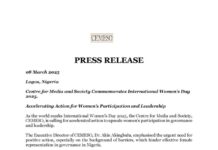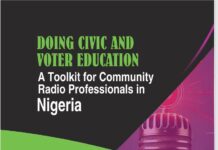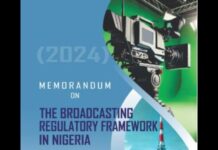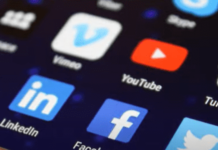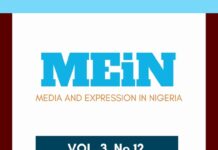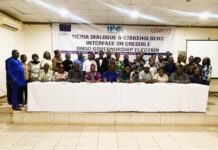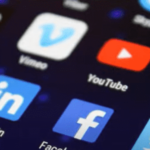Niyi Akinnaso
No one doubts that the primary function of social media —Facebook, Twitter, WhatsApp, Instagram, Youtube, and so on— is to connect people through interactive computer-mediated platforms so they can share information. In the process, social networks are created, some temporarily and others permanently, often for specific purposes.
But we also know that the use to which technology is put often depends on the users and the purpose. One of the major uses of social media in recent years is the mediation of the political process and discourse. All over the world, social media provides platforms for politicians to disseminate information in their bid to recruit supporters and donors. The advantage of social media for them lies in the opportunity of direct communication with supporters, by sidetracking regulated mainstream media such as radio, television, newspapers, and magazines as well as press conferences.
In the process, issues raised in mainstream media and on political campaigns are subjected to discussion and recast or repackaged in new light on social media. Supporters and opponents of particular issues and arguments are then given the opportunity on various social media platforms to participate in unregulated debate from their own private space. As a result, multiple voices are heard that otherwise would have been silent.
The danger of social media, however, lies in this repackaging process and the lack of regulation. Unlike mainstream media, which are regulated by ethical codes of conduct, the law, and the courts, social media are largely unregulated. Most of their practitioners often have no formal training and so lack professional ethics. They are, therefore, free to recast issues to suit their understanding, wishes, and dreams.
In some cases, conspiracy theories are created in the process of recasting issues, leading to the emergence of angry, partisan supporters, who pursue such theories to extreme limits, while opponents also come up with their own alternative theories. The consequence is extreme verbal thuggery in which opponents haul invectives at one another. Examples abound across the globe of extremists who snap in pursuance of conspiracy theories, by transforming verbal thuggery into physical thuggery, and then going on to commit violent acts.
A case in point is Robert Bowers, the synagogue shooter in Pittsburgh, who killed 11 people last month. He was a registered Republican and ardent supporter of President Donald Trump. He bought into the conspiracy theory on social media that Jews, in collaboration with Democrats, were behind the migrant caravan heading for the US border from troubled areas in South America.
President Trump is perhaps the greatest proponent of conspiracy theories in modern times. Far from simply using social media as a campaign tool, and then as governance tool once elected, Trump uses it to propagate conspiracy theories, which, in turn, fire his base of supporters into action.
Since becoming President in January 2017, Trump has inundated the public with over 4,000 tweets. He uses tweets to distract from entire news cycles or even stop them. He also uses tweets to initiate news cycles. Above all, he uses them to propound conspiracy theories, which his base often takes hook, line, and sinker.
For example, after a machine recount was ordered in the recently concluded Florida races for the US Senate and governor, according to the state’s electoral law, Trump went on Twitter, without evidence, to propound a conspiracy theory, implicating Democrats: “Trying to STEAL two big elections. We are watching closely!” Almost instantly, ultra-right bloggers and social media groups started disseminating the theory and taking position.
Another danger of social media is its use in propagating disinformation, by spreading untruths, which the Trump administration once described as “alternative facts”. Perhaps, in a subtle rebuttal, one of the CNN’s Banana/Apple advertorials ends with the words “Lies can become Facts. If we let them”.
One of the key strategies used in the Russian meddling in the US election, currently under investigation, was disinformation. Basically, untruths were spread about leading Democrats and the Democratic Party, presumably to Trump’s advantage.
The role of social media in Nigeria’s 2019 general election should be viewed against the above backgrounds. It is particularly important to monitor, but without gagging, social media usage in Nigeria from now through the general election, because of the porous nature of Nigeria’s political space and the incoherent nature of the nation’s security architecture, with security officers looking away while crime is being committed.
Already, all the candidates of major and minor political parties have taken to social media in their bid to woo supporters. This is particularly true of President Muhammadu Buhari of the All Progressives Congress and former Vice President Atiku Abubakar of the Peoples Democratic Party. The restructuring debate and Buhari’s fitness for office have featured on their social media platforms, especially Facebook. Various opinion polls have also been conducted online on both candidates.
Educated users of social media, especially bloggers, should guide discussions on their platforms towards informed debate of issues, by offering clarifications and suggestions. Extremists should be gagged, if necessary, or completely delisted. However, extreme measures, such as an obnoxious Social Media Bill once proposed by the National Assembly, should be completely avoided. The value of free debate offered by social media should be protected.
Appropriate lessons should be learned from the United States. Instead of gagging social media users, attention has been turned on intelligence and security agencies, particularly the Central Intelligence Agency and the Federal Bureau of Investigation, and the social media providers, notably, Facebook, Twitter, and Google.
On the one hand, the CIA and FBI are enjoined to be at alert at all times and give special attention to political discourse on social media. On the other hand, social media providers are admonished for their laxity and required to provide safety measures against disinformation, fake news, hate speech, and extreme views.
In the Nigerian case, candidates for political office and their supporters should refrain from using inflammatory rhetoric and disseminating false information on social media. They also should be ready to quickly denounce untoward statements and fake news on social media in support of their campaign. For example, the type of verbal diarrhoea, including soon-to-die fabrications, emanating from some supporters of former President Goodluck Jonathan against candidate Muhammadu Buhari in 2015 should be completely avoided.
Similarly, public education will be necessary on radio, TV, and social media platforms, warning against the misuse of social media during the election campaigns. Newspaper editors should take special care to regulate the comments sections of the stories and opinions they publish. I recently read some readers’ comments in some newspapers and was surprised that hateful and incendiary comments as well as false information were admitted online.
Social media should not be used to spread false information. Nor should they be used to incite people against particular candidates or their parties or to inspire violent acts. Not only are such uses dangerous, they detract from the democratic tradition. The focus should be on how social media could be used to enhance our democracy.



